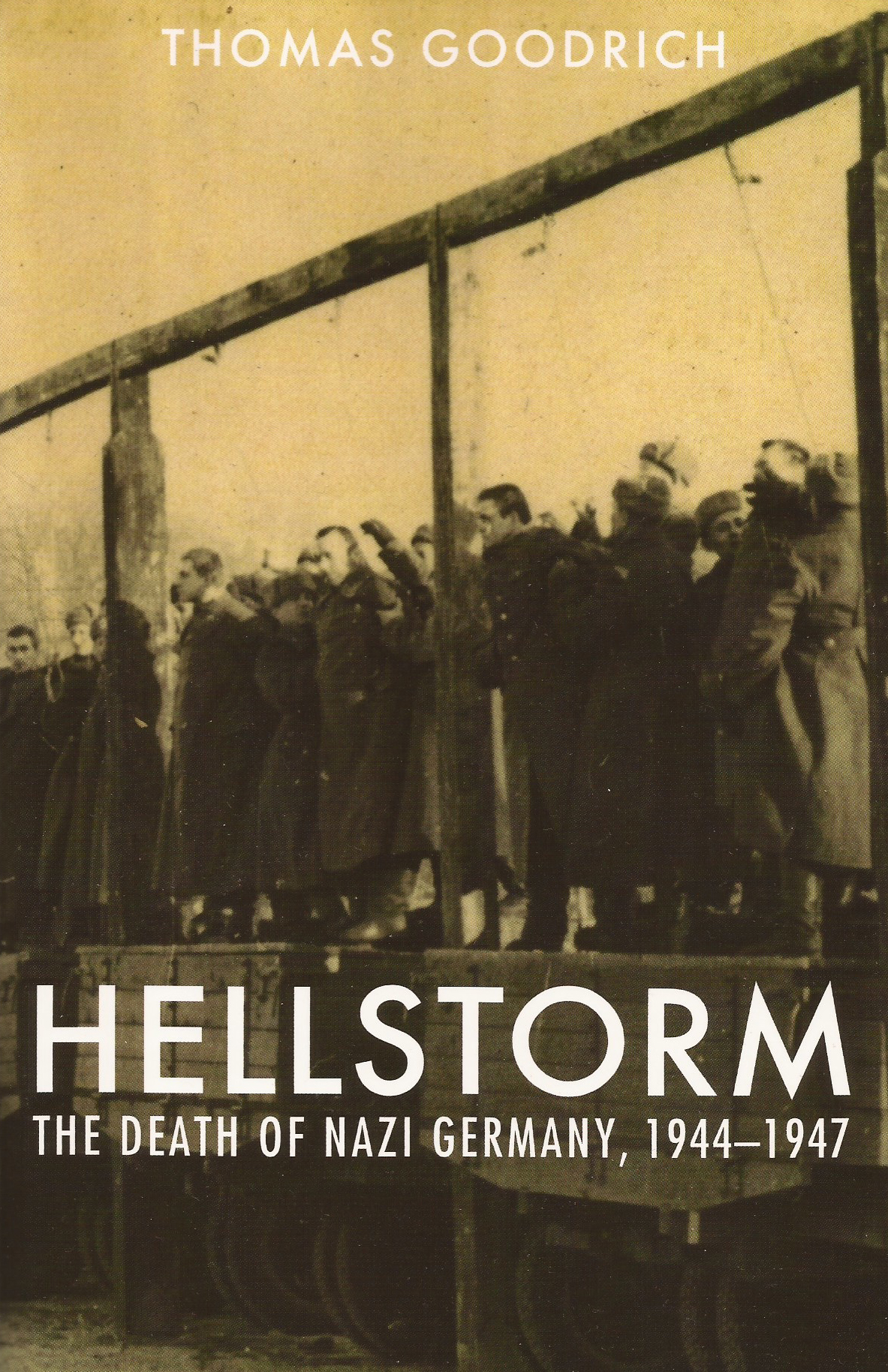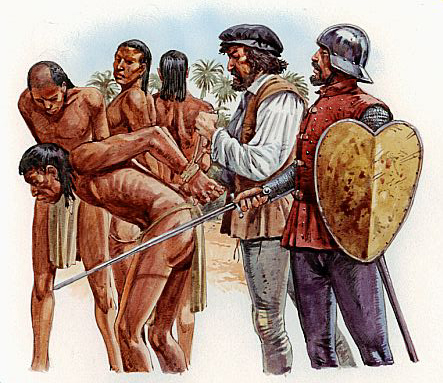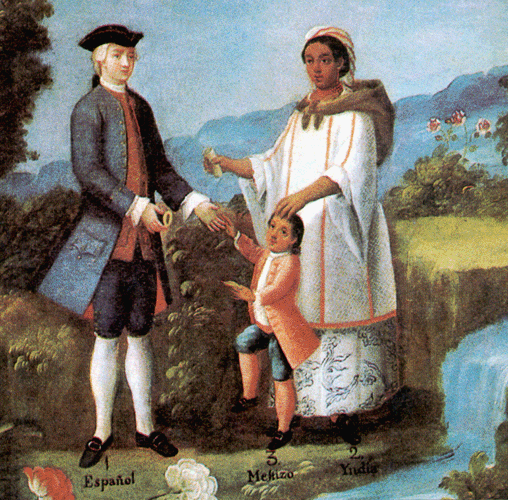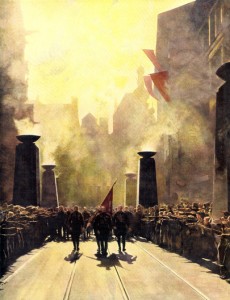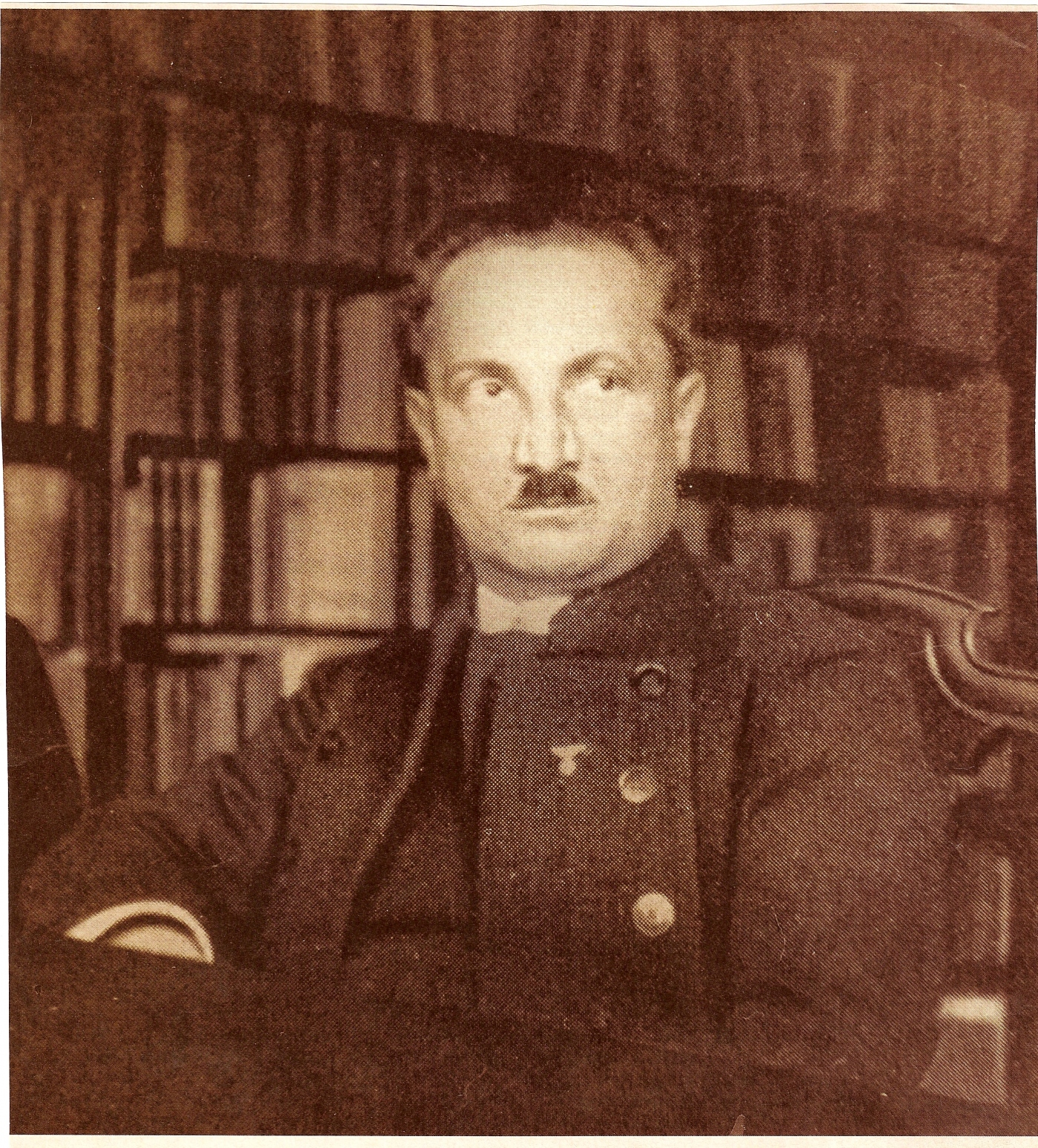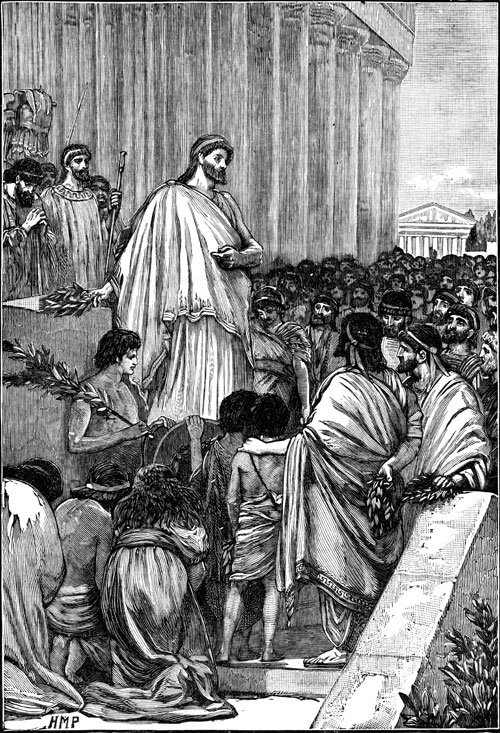In almost any war one side can be dishonestly demonized even by a truthful enumeration of its crimes, if the crimes of its adversaries are suppressed. —Irmin Vinson
Excerpted from Thomas Goodrich’s 2010 book
Hellstorm:
The Death of Nazi Germany
(1944-1947)
Hell from Above
The next night, RAF bombers returned. In addition to the normal payload of high explosives, the British sent down tons of phosphorous bombs to accelerate fires. The resulting conflagration ignited a “fire storm.” Hurricane-force winds created by the intense heat and subsequent updraft uprooted trees, ripped roofs from buildings and sucked screaming victims back to the inferno. Some who escaped the 150 mph winds in the streets became mired in melting asphalt and quickly burst into flames. Those who threw themselves into the city’s canals died of thermal radiation to the lungs, then, as they floated on the water’s surface, they too ignited. In the center of the Holocaust, temperatures reached 1,500 degrees and when the great mass of flames joined they rose to a height of three miles. The hellish drama below was not lost on those above.
“As I looked down, it was as if I was looking into what I imagined to be an active volcano,” said one horrified British crewman.
The attack against Hamburg continued unabated for another week. Finally, there was nothing left to destroy. Aptly dubbed by the Allies “Operation Gomorrah,” the raids had been a cold and calculated attempt to scorch Hamburg and its people from the face of earth. The plan succeeded. With thirteen square miles of total destruction, Hamburg, for all intents and purposes, had ceased to exist. Helmut Wilkens witnessed scenes in his burning neighborhood. “Screams came from under tons of burning debris. In every direction I looked trapped people begging to be freed.”
And then, after hours, even days, of death, screams, tears, and occasionally miracles, something often occurred that many thought impossible—the sirens sounded again. For many incredulous victims of the first raids, the sound seemed—and often was—the end of the world. As was the case with the attacks against Hamburg, Berlin, Nuremberg, Darmstadt, Cologne, and other German cities, after first blasting a targeted town to splinters, the British and the American bombers soon returned in hopes of catching survivors and rescuers in the open and igniting with the fire bombs all that remained.
“People who got phosphorus on them presented a fearful sight,” recalled Rosa Todt. “Their skin was bright red, water dripping out of the pores of their skin, their ears and nose; their whole face was a nauseating mask.”
With every fiery step, a new nightmare appeared. “I struggled to run against the wind in the middle of the street,” wrote nineteen-year-old Kate Hoffmeister. “We couldn’t go across because the asphalt had melted. There were people on the roadway, some already dead, some still lying alive but stuck in the asphalt. They were on their hands and knees screaming.” Herbert Brecht: “There was a soldier in uniform near me with a lot of medals. He tried to take his own life with a knife… The screams of burning and dying people are unforgettable.”
Like the badly burned Brecht, some miraculously survived the Holocaust, reaching safety in rivers, canals and parks. [Brecht on an elderly man]: “He could only say, ‘Child! Child!…’ The air was hardly breathable and my injuries hurt hellishly. Dead lay everywhere. Most were naked because their clothes had been burnt away. All had become shrunken, really small, because of the heat… I saw a burnt-out tramcar in which naked bodies were lying on top of each other. The glass of the windows had melted.” Anne-Lies Schmidt noted as she searched for her parents in a section of Hamburg: “Everything seemed to have melted… Women and children were so charred as to be unrecognizable… Their brains tumbled from their burst temples and their insides spilled from the soft parts of the ribs… The smallest children lay like fried eels on the pavement. Even in death, they showed signs of how they must have suffered—their hands and arms stretched out as if to protect themselves from that pitiless heat.” Otto Muller relates:
I was going through the burning streets when I suddenly saw a young girl. Her face was black with soot except for two streams of tears which were running down her face. She was dragging her little dead brother behind her; the right side of her face was already scraped smooth. She had been wandering around aimlessly for three days and two nights.
While Arthur Harris was the man planning and implementing the bombing campaign, and did so with undisguised glee, Winston Churchill was the individual responsible for its onset and, ultimately, its outcome.
The fiery massacres continued. Operating under the promise that “bombing something in Germany is better than bombing nothing,” Allied warplanes returned to old targets again and again. Explained a chronicler from the heavily bombed city of Kassel:
Three hundred times the people of Kassel ran terrified to their air-raid shelters as giant British and American planes dropped their bombs.
“German cities… will be subjected to an ordeal the like of which has never been experienced by a country in continuity, severity and magnitude,” vowed Churchill. “To achieve this end there are no lengths of violence to which we will not go.”
____________________________
Educate yourself about the Holocaust perpetrated on the German people by the Allied forces that the mainstream media has covered up for nearly seventy years.
Hellstorm is still available from the publisher.
